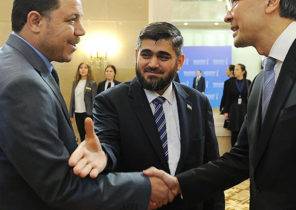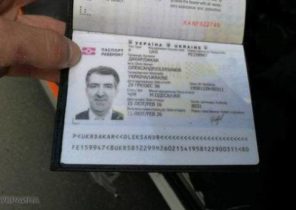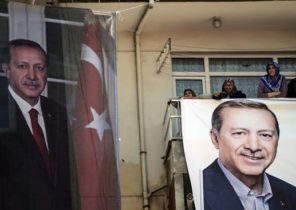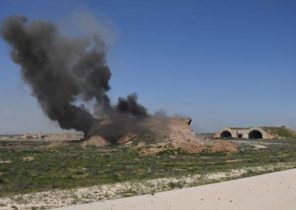
After the increasingly shrill and harsh warnings about the Russian cyber attacks that were heard for several months, including alleged Russian interference in the presidential race 2016, the Obama administration imposed sanctions and punitive measures against suspects the Russians. The President called these measures “a response to aggressive prosecution by the Russian government, American leaders and cyberspace operations, the target of which was the election in the United States.” According to Obama, after the “numerous confidential and public warnings to the Russian state” the sanctions were “necessary and appropriate response to attempts to undermine American interests in violation of universally recognized norms of conduct in the international arena”.
The determination of the Obama administration to respond to Russia’s actions in the remainder of her time is understandable. A bipartisan majority on Capitol hill probably will support these measures, and in the near future may also impose additional sanctions against Moscow. But it is much less clear what will make the burden of these sanctions on Russia to change their behavior that caused such consternation in the West.
American sanctions against Russia is nothing new. Throughout the cold war, the Congress and the Executive branch has used trade sanctions in order to emphasize his disapproval of Soviet foreign policy, as well as to the way Moscow treats its own citizens, including Jewish refuseniks and other dissidents. After an unsuccessful attempt by President Obama to “reset” relations with Russia sanctions again came in first place, becoming the preferred instrument of us counter Russian policy.
In 2012, Obama approved the Magnitsky act, which imposed sanctions against some Russians for their involvement in human rights violations. Moscow responded by banned American citizens from adopting Russian orphans, and plus, tighten the screws of the U.S.-supported Russian charitable and non-governmental organizations. When in 2014 Russia invaded the Ukrainian Crimean Peninsula and annexed it, and also supported the armed uprising in the East of Ukraine, followed by new sanctions at this time, along with the European punitive measures. Russia responded with counter-sanctions against Western products and services, the beginning of a tough anti-Western rhetoric and — according to U.S. and European intelligence service, has launched a well coordinated campaign of misinformation, which includes cyber-attacks against political targets in the United States.
If the purpose of the Magnitsky act was to improve the situation with Russian dissidents and whistleblowers, it is very difficult to argue that she achieved. Accordingly, if the task is related to Ukraine sanctions was to force Moscow to comply with its obligations under the Minsk framework agreements, it is also clearly not done.
It’s not surprising that Western sanctions have not led to any serious reform of the Russian political system nor to changes in the Kremlin’s foreign policy. However, as proponents of sanctions, they can be an effective deterrent to Russia in the future. In this regard, an important question arises: is it enough to be the last of the sanctions (and indeed any sanctions) in order to keep Russia from such action which caused the reaction of opposition from the United States.
At the peak of the cold war, Nobel laureate economist Thomas Schelling (Thomas Schelling) was defined deterrence as the use of force for coercion, and to prevent enemy attack. The views of Schelling on nuclear weapons as a deterrent and intimidation consistent with the view of George Kennan (George F. Kennan) that deter the Soviet leadership possible. “If the enemy has sufficient strength and clearly demonstrates its willingness to apply it, wrote Kennan, he rarely has to use it.”
What should be done to ensure that such a mechanism of containment and deterrence kept Russia from cyber attacks in the future? First, these attacks must be clearly identified, and their Russian origin conclusively proven. By that measure, the White house has problems, as it announced measures of retaliation to the publication of the results of the intelligence analysis on the issue of Russian interference in the elections of 2016, which will be completed in January.
Some intelligence sources in the United States has concluded “with high confidence” that senior officials approved cyber attacks on political targets in America with the intent to influence the election of 2016. However, the newly elected President, Donald trump reacted to these conclusions dismissive, saying on Twitter: “These same people in 2003, saying that Saddam Hussein has weapons of mass destruction”. The problem is that if the Americans there is no consensus on what actions Russia should be punished and what action will need to contain in the future, then they risk creating confusion in the signals that are trying to apply Russian, Chinese, and whoever else intends to restrain Washington.
Second, to ensure the success of the containment strategy, we need to understand what punitive measures seem convincing and plausible, and can be implemented by Washington in practice. The administration probably will take punitive measures against those people that are listed in the new order of the President, including representatives of the leadership of the FSB and the GRU. The President also promised “to take a number of actions, by choosing the time and place at our discretion, and some of them will be carried out in a closed order.” It is important to know whether those individuals who were sanctioned are responsible for cyberattacks, and they will make decisions about carrying out such attacks in the future.
And the last question is, will it be possible to actually deter and frighten the enemy. Whether the costs of U.S. sanctions on Russians will be higher than the estimated benefit from cyber attacks? Judging by the reaction of the Kremlin, individual sanctions against senior Russian leaders will not have the desired deterrent effect. On the contrary, such measures of the United States with the purpose of “naming and shaming” senior Russian leaders, as well as to punish the persons and organizations involved in cyber attacks, would be for the Kremlin the justification for new countermeasures.
“If Washington will indeed take new hostile steps — warned the Russian government — they will be answered”. If you remember the Russian response after the introduction of us sanctions in the past, Washington should expect further escalation of the conflict, and not an effective deterrent effect. Where and how this will happen is yet uncertain, and this increases the risk of uncontrolled escalation of the conflict in cyberspace.
U.S. sanctions is unlikely to deter the Russians from cyber attacks in the future. It is not only in a very limited capacity of Washington to punish adequately officials, which he believes organizers of hacker break-ins, but that none of the parties are not willing to accept mutual deterrence in cyberspace. In the early 2000-ies, the Russian side offered to hold negotiations with the aim of reaching agreement on the control of cyber weapons, but the American leadership at that time was not interested in deterrence, believing that the U.S. will conclusively rule in cyberspace. Now the Kremlin sees the cyber attack an indispensable counterweight to U.S. and NATO dominance in traditional military sphere and is therefore reluctant to agree there is no Russian.
The simple truth is this: if the parties consider that will achieve greater benefits in the case of the use of cyberweapons, not a failure, then deterrence will fail. Today American sanctions highlight the urgent and disturbing nature of cyberthreats, but they are unlikely to reduce these threats. And although the President-elect trump has demonstrated its desire to mitigate the conflict with Russia and to focus on common interests such as the fight against ISIS (banned in Russia organization — approx. lane), his inheritance will be dangerous and upset relationships, which are rapidly drifting in the direction of the cold war to the 21st century.
Matthew Rojansky Director of the Kennan Institute at the International scientific center named after Woodrow Wilson in Washington.







